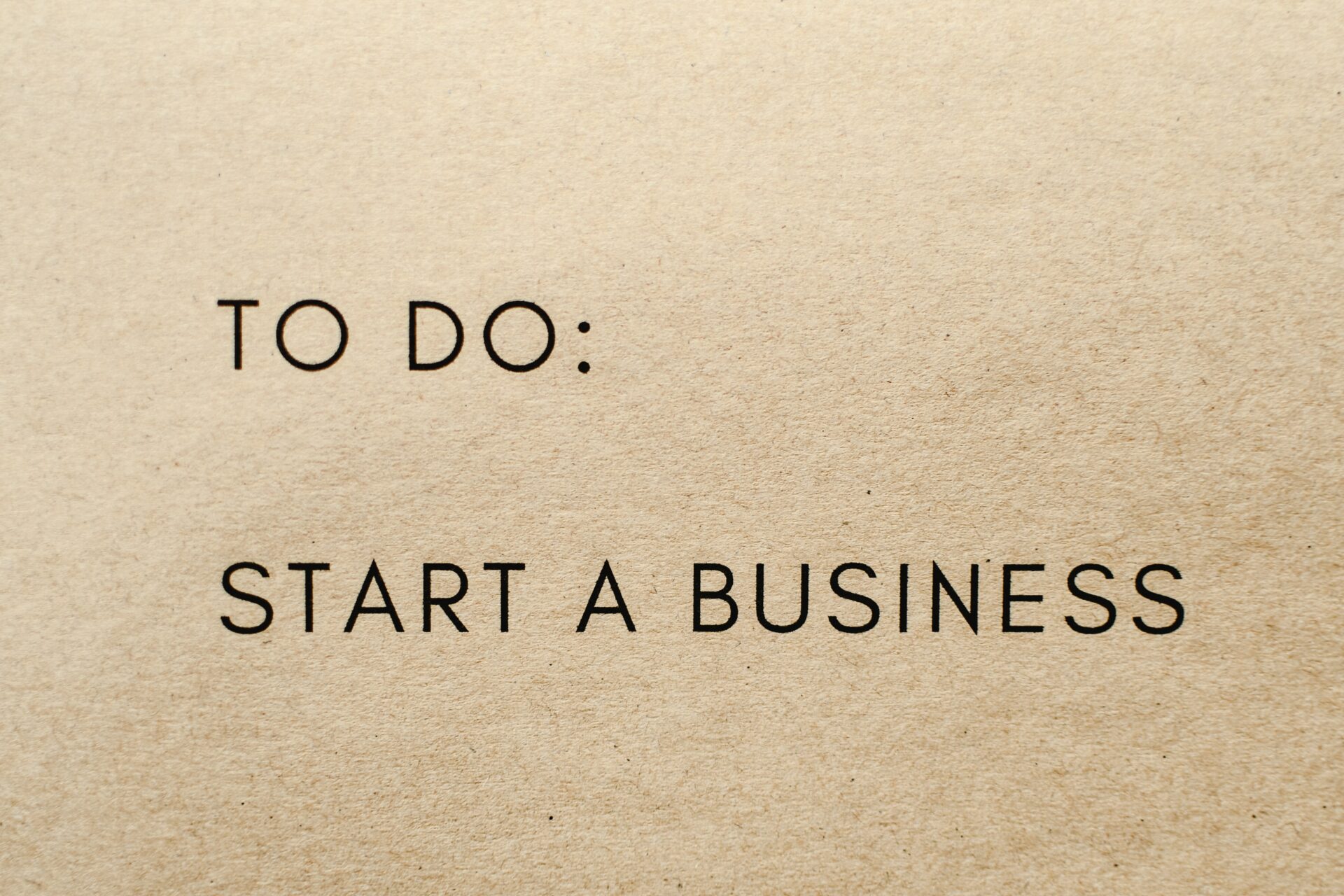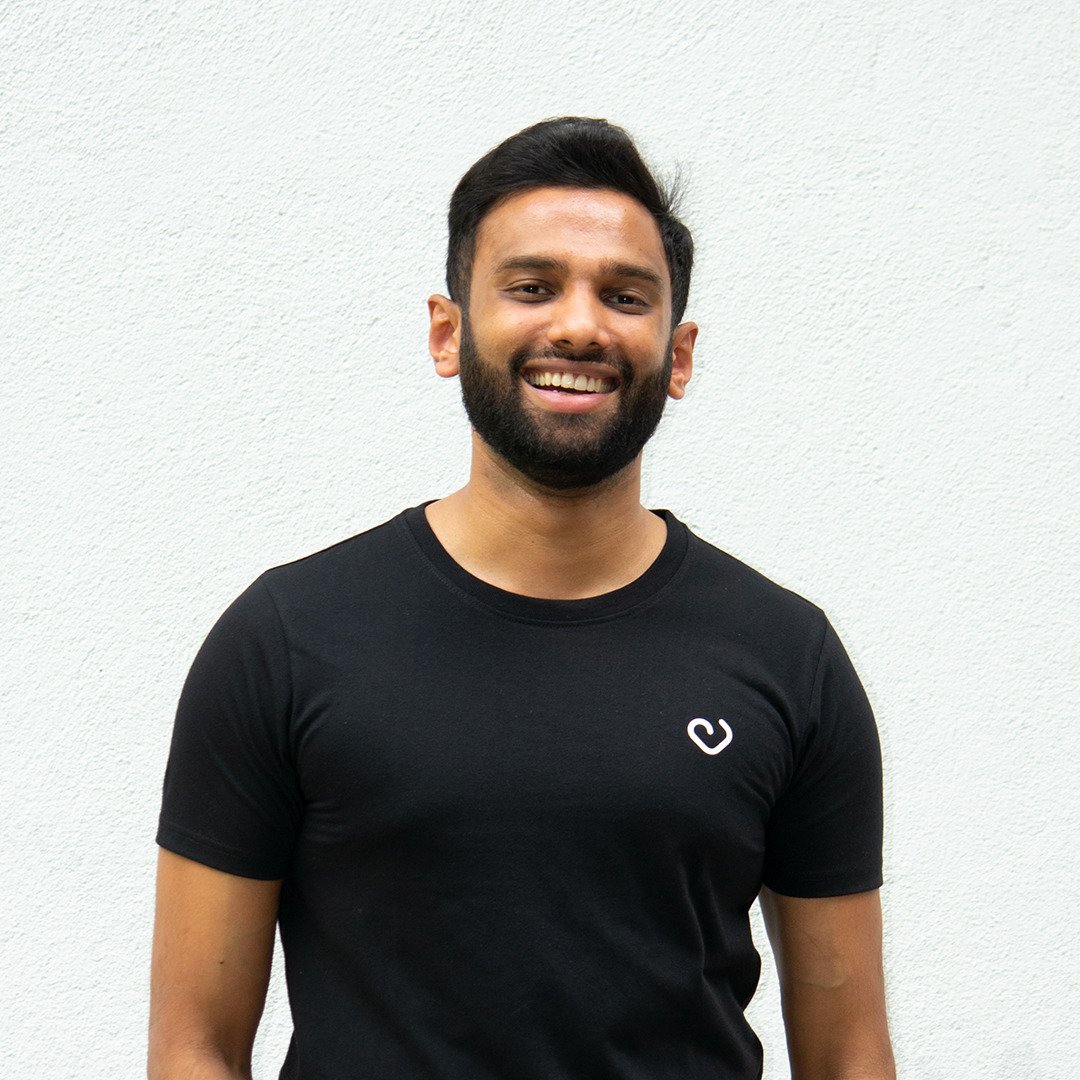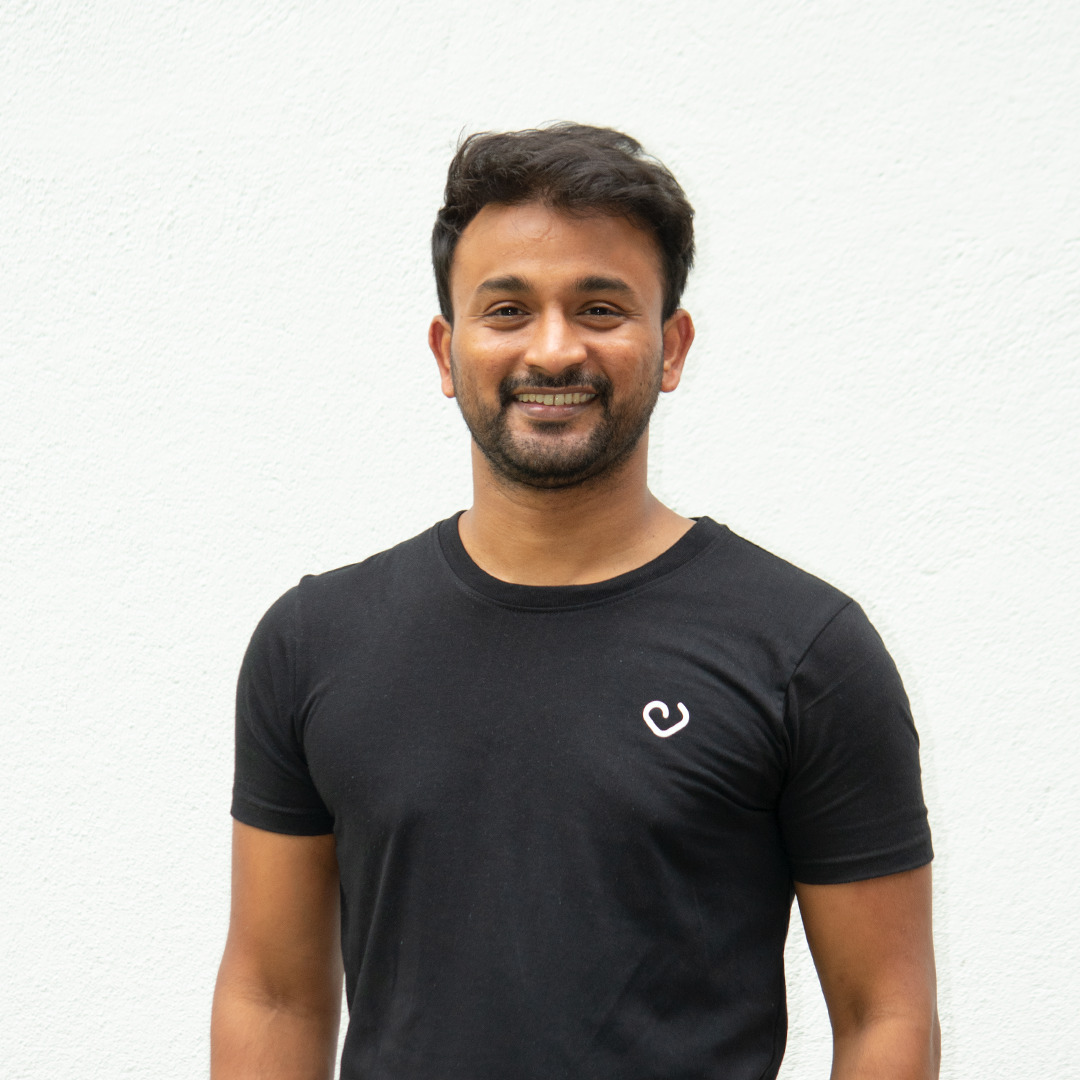
The question ‘how to become a successful entrepreneur’ is one many of us have asked before. We often look to success stories to inspire us; and we’ll do it again today, for a very simple reason: if you’re uninspired, you can’t innovate. If you can’t innovate, you can’t become an entrepreneur.
National Entrepreneurs’ Day falls on November 15, so this time around, we’re going to share with you the journeys of four entrepreneurs who undertook the turbulent path of setting up a business and seeing success.
We’ll talk about their lives before they set on this path, the obstacles they faced, how to work around funding, and best of all, why it is so important to try your hand at entrepreneurship. Let’s get into it!
Becoming an entrepreneur
The simple truth is, there is no one-size-fits-all approach to successful entrepreneurship. There is also no magic weapon to eradicate the obstacles you’ll face.
The more complicated answer is that it boils down to a delicate combination of belief in an idea, leadership, experience, passion, strategy, and sacrifice. So, the first thing you need if you’re vying to become an entrepreneur is an idea you really believe in.

Look at the products or services that make headlines. They all have one thing in common: they were introduced to solve a problem or to address a gap. You may have what you think is a well-rounded idea, but you must center your potential customers. Focus on what they require and what they can obtain from this idea.
Ask yourself, what value does this idea bring to the table? What previously unaddressed need will it address? Perhaps something similar already exists in the market, but what can your product or service do differently that’ll set you apart from your competition?
This is not an undertaking that comes easily to most people. Ask any entrepreneur just how difficult the journey was and they’ll tell you that you must brace yourself for mistakes, criticism, and even failure.
But don’t let that bring you down. This doesn’t mean you are destined to fail. It just means that if you do, you’ll always have something to gain from it — even if it’s just wisdom, which will usher in a newer, more successful journey.
Continuous improvement and constantly bettering yourself are integral parts of entrepreneurship.
Vital entrepreneurship skills
The skills of an entrepreneur are far and varied when you see them as individuals; but as a group, there are a few skills that are must-haves in order to ensure success. Combined with your hard skills, you’ll also need several soft skills.

The good thing is that if you don’t possess the following, you can always learn. It’s never too late.
- Communicating: Being an effective communicator is front and center of being a good entrepreneur. Without communication skills, you can’t build a network nor can you lead a team!
All stakeholders of your business rely on your ability to not just speak well but also to listen. This covers everything from being able to type a clear email to giving instructions to your team, or even selling your idea to potential investors.
- Strategizing: A poor strategy can doom even the greatest of ventures. Right from the start, while your idea is still at its nascency, you must put in the effort to strategize accordingly. It helps your define your goals, gives you direction and highlights your values and purpose.
A roadmap helps you set your short- and long-term objectives and makes sure you have the capacity to address them. This comes into play from structure to resource management, conceptualisation, growth and execution. Any and all points of operation would be lost without a well-implemented, solid strategy.
- Business management: You may have noticed that many successful entrepreneurs have business management degrees or some sort of qualification in this field.
This is because it provides them with the crucial skills and knowledge to keep a business afloat. Under this falls a plethora of sub-fields that are equally important, such as HR or finance.
To understand the inner workings of a business — to really understand what makes it tick, what could harm it, and what could help it thrive — we’d recommend pursuing a qualification in business management. Even an introductory certificate course will do wonders for you.
- Learn to learn: Starting a business is more than just about starting the business. You will need to be on top of your game all day, every day. This means today’s you needs to be better than yesterday’s you. It might sound hard, but it really isn’t.
The one thing that will assure this is learning. Find something enlightening to absorb every day. Read articles, keep tabs on your competitors, talk to your team, talk to your customers, attend seminars, or even take a short course.
You can even revisit past mistakes and see what you could’ve done better. The key is to never stop learning. You’ll only have yourself to thank.
- Leadership and teamwork: It goes without saying that leadership is of utmost importance. Being a good leader requires having the ability to inspire.
Your team needs to believe in you, and that’s how you can ensure that everyone’s giving it their all.
Here’s an example. You may have seen traditional workplaces where bosses constantly scold their employees but with the dramatic shifts in workplaces over the past few years, this wouldn’t fly.
In today’s environment, a good leader doesn’t yell pointlessly at their teammates for making a mistake, but rather, they would facilitate finding a solution to rectify it. This inspires confidence.
In addition to that, it’s imperative that you don’t view yourself as an overlord watching over minions from the top of the tower. You are a part of the team.
As a part of the team, you must hold yourself accountable just as often — in fact, even more — as you would your teammates.
What type of entrepreneur are you?
Something you must decide early is what type of entrepreneur you want to be. It’s easy to look at this group of people and assume they’re homogenous.
The truth is entrepreneurs are quite diverse. Here are some of the most common types of entrepreneurs.
Dreamers
Are you more of a dreamer? If you find yourself coming up with new, unconventional ideas off the bat, then this might describe you best. You have the capability to disrupt the market with something completely new, but the real issue is whether you can turn this novel idea into a viable business.
If you find yourself dreaming, you might want to rein it in. The reason why is dreamers are very much like Icarus — they often tend to fly too close to the sun. Find a way to methodically balance your passion with a sustainable model that will work in the long term, rather than opting for short-term gains (as great as that may feel in the moment).
While standing out comes easy to you, you must also learn to blend in. There is a very thin line between your product or service being seen as “unique”, and therefore desirable, and being seen as “bizarre”.
Marketing is definitely your best friend, and therefore a very good investment from the get-go.
Imitative
On the other end of the spectrum are the imitators — and we don’t necessarily mean this in a derogatory way. This type of entrepreneur builds their business on existing knowledge — or even technology — and either adds a twist or introduces it to a new market where the preceding idea has not taken hold yet.
For example, you’ll find a lot of them reverse-engineering existing products or re-introducing existing services to developing markets. This is not a bad thing in most cases.
Sometimes, it benefits the consumers tremendously as it is often a more affordable option — particularly in developing countries — than the options introduced by wealthier nations.
Other times, it could be a product that has been improved in ways the original fell short. Perhaps is it more accessible to people with disabilities, or it has more environmentally-friendly components.
The benefits of this pathway include a less convoluted process overall, less stress, more benchmarks to compare with, and also more available knowledge on mistakes done previously that will help you avoid doing the same.
But beware, the downside is that there will always be a shadow hanging over you — that of the original product/service. Escaping comparisons and criticism from loyal customers of the pre-existing companies is nearly impossible.
Buy first, boss later
You don’t always have to meet an unmet need in a market to make it as an entrepreneur. A very common form of entrepreneurship is the type of people who buy existing businesses that have most often seen success, but in some cases, are going under and need the buyout.
If you have a lot of money but don’t really feel like starting from the ground up, well … then you can always opt to become a buyer. But the issue is, this is where experience comes into play. Many ‘buyers’ are seasoned individuals after years of playing the field. Doesn’t mean you can’t start now — just that you must exercise caution.
Making sure you’ve settled on a worthy investment is a whole new ball game. The Harvard Business Review (HBR) states that the search begins by sourcing and filtering prospects.
It goes on to state, “Forget rapidly evolving start-ups and risky turnaround opportunities; you should look for steady (often unglamorous) enterprises that are profitable year after year and likely to remain so—what we call enduringly profitable.”
HBR recommends five key criteria for consideration. First, ask yourself if it is profitable. Secondly, is it an established business? Are its revenues and cash flows in the desired range? Do you have the skills to manage it? Finally, does it suit your lifestyle? This includes location, hours, need for travel, etc.
Following the legacy: Mustafa’s journey
Living up to familial expectations is something we can all relate to at some level — this is especially true for Mustafa Kassim, the Founder & CEO of Sri Lanka-based media giant Roar Global.

Coming from a family with a very strong entrepreneurial background dating all the way back to his great-grandfather, Mustafa stepped into the entrepreneurial arena at the young age of 16. He was passionate about starting and growing his own business and he began his journey with a website development firm.
Following this endeavour, Mustafa entered university, but even then, he continued to work as a ‘self-employed’ entrepreneur, getting involved in social media marketing and other service-oriented tasks.
Creating Roar Global
Speaking on what inspired him to establish Roar, Mustafa said: “It was a natural progression for me once I graduated from university. I was studying in the USA. At that time, I noticed that there was quite an economic shift taking place back in my home country, Sri Lanka after the conclusion of the Civil War.”
“While searching for information on this shift online, I found there were next to no English resources available or much documentation on this. Most of what I found were news and gossip sites. This is what inspired me to launch Roar,” he stated.
Sri Lanka was just gaining recognition as an emerging economy at the time, and in that period, startups had only barely managed to gain footing amidst all the turbulence.
But Mustafa had much more than the local landscape to take into account. Much of the rest of the world had already claimed their slice of the new media market, from popular platforms like Buzzfeed gaining international recognition to sites like ScoopWhoop in India grabbing their niche in the region.
It was clear that Roar had a part to play in levelling the playing field for Sri Lanka. It took Mustafa roughly two years to decide that of his ventures, Roar had the most promise. The biggest indicator for this decision was user feedback.
“In 2014, we started out as an English blog (then known as Roar Media). From the feedback we were receiving via comments to the engagement across social media, the interest shown by brands who wanted to work with us, and the interest from contributors to write for us — the market was telling me that what we have here is a great product and it’s something that we should invest in and take forward,” Mustafa explained.
But what led to this burst of success? For Mustafa, the key was having a strong team. “We were lucky and fortunate to be able to have a very strong team from the get-go. I don’t have a media background myself, so it was the team that was really guiding me and pushing Roar forward.”
Today, Roar Global is eight years into its journey with five distinct arms: Roar Media, Roar Studios, Roar Digital, Density Media, and 3P Media.
Addressing challenges
This, of course, came with its own set of challenges. “When you have an idea and you’re trying to build something, the hardest part is getting other people to believe in the vision. They do not want to take a risk on a new company or new startup. Getting talented people to join, to believe in the vision and to stay committed to it was the biggest challenge. However, once we crossed that challenge, it turned into our biggest success.”
A notorious issue with new media platforms is monetization — and Roar Global (Roar Media at the time), also had its fair share of struggles with this issue.
“There are only two ways you can monetize a digital media platform. Either you have advertisers paying you or you have users paying you. In a market like Sri Lanka, users wouldn’t pay. It’s a very low-income country; per capita GDP is very low and there’s very little disposable income. We attempted this in 2017 and received a lackluster response,” Mustafa explained.
“On the other hand, you can compete for advertising dollars, but when you have global platforms that are also competing for these ad dollars from the same advertisers, they offer far superior products and reach. If you’re an advertiser with a limited budget, that budget is going to go to a global platform that offers benefits like tracking tools to reach a much larger audience and larger advertising inventory.”
The solution, then, was sponsored content through a second arm: Roar Studios.
While Roar Media remained a multi-lingual media platform for original stories and journalism, Roar Studios was introduced as a content production house, offering ‘innovative concepts, creative storytelling, and stunning visuals to craft authentic narratives’ specifically for brands and organizations.
The other issue in the same vein was funding.
Funding opportunities
Money is always a concern when you’re running a business. Many among the younger generation turn away from entrepreneurship because they’re worried about how they could secure funding. So, what funding opportunities should they go for?
To this question, Mustafa suggests organic or self-funding in place of opting for ‘traditional debt’.
“Organic funding is where your business funds its own growth Most businesses can be scaled organically, and I believe that’s the right way to do it. A lot of entrepreneurs get stuck in the trap of raising a lot of money, venture capital money, and then not being able to deliver on those expectations. Then they’re forever stuck in this race of trying to raise more money.”
He advises entrepreneurial hopefuls to start small, really understand what the market wants, figure out how to make it profitable, and use those proceeds to reinvest in the company and make it grow. This is a much more sustainable approach.
“Once you do have traction, you have product-market fit, and you see that what you’re doing is working and then you need money to really scale up and grow, that’s when you should look at venture capital,” he stated.
Woman in entrepreneurship: Lorraine’s journey
Being a woman entrepreneur is not an easy task — and many in the field would highlight the unique obstacles they face in trying to run a business while being a woman.
Discrimination, limited opportunities and more continue to plague the world of business, but thanks to those who’ve soldiered on through it all, we’re starting to see a drastic change in the landscape that is more welcoming of women entrepreneurs.
For Lorraine Adebowale, Founder of Purple Kaizen Creative Coaching and Consultancy, the passion to stamp her name on the arena burns hot.

Lorraine enjoys helping business owners to grow their companies. Through her venture, she has managed to successfully ‘transform the recruitment process, leverage young talent and really create sustainable success for the intern and the business owner.’
Early beginnings
Lorraine has always been an entrepreneur.
“Even from when I was at school, I was always setting up loads of different projects. We ran an arts and craft group for a special needs unit. Then I set up a cooking class. I’ve always been very entrepreneurial.”
Despite her knack for coming up with and executing brilliant ideas, Lorraine highlighted how different her background is from business, having obtained qualifications in drama and German.
But this contributed to her gaining variegated work experience and being able to build a unique pool of knowledge and skills for herself.
“I started out in arts education, using creative learning to help educate, empower, and entertain. I’ve worked with loads of amazing companies and non-profits. I’ve even worked in schools, prisons, youth charities, and film organizations. I segued into business when I was running a community acting program and lots of people were asking me for help with their presentation skills and their interview skills,” Lorraine explained.
And so her journey began.
“I liked going behind the scenes and getting under the hood, trying to find out what was going on for them in business, to see what it was that they were going to present and speak publicly about.” This was met with vociferous enthusiasm, especially as the youths felt they’d uncovered new knowledge about how to improve their skills.
Pursuing entrepreneurship
Lorraine specifically wanted to do arts education, but unfortunately, that didn’t really exist as a job.
“I had to create my own pathway for it. There weren’t jobs where you got to go in and teach drama to help people build their confidence and their skills. I knew that there were arts education companies out there and they were all on a freelance basis. So, I started out as a freelancer for lots of different companies while also developing my own projects.”
She emphatically stated that she loves empowering people and seeing people grow.
“My business is designed to help me do what I love. The reason I specifically set up the program that we’ve got now is that I was lying in bed ill, and pregnant with my second baby! I was in a really hopeless place. I thought to myself, you know what? Enough is enough.”
She was determined to see this through no matter what.
Why hire interns?
Lorraine kicked off her venture with a team of interns, who she says were crucial to helping the development process.
“For entrepreneurs, that is a good way to capitalize, to be creative and resourceful. If you can’t afford a massive team, why not think about interns? This could be a good opportunity to inspire young people, swap skills, etc.,” Lorraine said.
After managing to secure a few interns, Lorraine and the team got to work swiftly, handling clients, taking care of administrative tasks, and more.
“I worked with a hundred different interns before I knew for sure that it worked. I knew that they could help me really get the growth that I needed and kickstart the company.”
Lorraine went on to talk about how the challenging pregnancy and then the birth of her daughter, Elena, gave her space to really explore her ambitions.
“I did use that time as a chance to blank canvas everything and really think about the impact that I wanted to make. The principle of Kaizen is, how can you make the biggest difference with the smallest amount of change and continually improve?” Lorraine said.
She added, “For me, she was a catalyst for that. I was genuinely so grateful to be alive and to have her well. That kind of prompted the rebirth.”
Lawyers ‘Rn’t Us: Vinay and Niran’s journey
The final story we’d like to share with you is the story of Capital Placement. We’ve come a long way over the past 10 years but how did we start out?
Our story goes back to 2012, when two first-year law students, Niranjan Thampu and Vinay Vimalan, came to the downright depressing realisation that the job market was becoming increasingly difficult to navigate.
After being subjected to a candid speech on the ‘real world’ from their law professor, Niran and Vinay decided that their best chance at beating the system was to accumulate tons and tons of work experience through internships!

They set out to take on as many internships as they could (including volunteer work and even a modelling gig). The word started to spread, and soon, their friends and others in the university began reaching out to them for help in securing internships and boosting their resumes (or CVs).
This was where the idea for Capital Placement began to blossom. They soon realised that law wasn’t their true passion — but that their true calling was entrepreneurship.
With Capital Placement, their goal of bridging the gap between university and the working world was made much more attainable.
Now, we usually acknowledge Vinay and Niran as a package deal, but the truth is, as young entrepreneurs, their individual approaches and outlooks differ. Here’s their input.
Vinay’s approach
Some of us managed to set foot into our higher education knowing what we want to do or what we want to become, but for Vinay, pursuing law was more of a … “Whatever, I’ll give it a go” situation. But, as we mentioned earlier, this soon took a turn.
“We became interested in doing an internship abroad in our first year at university, just because we understood the value of getting an internship early on in your CV,” Vinay explained.

“We took it upon ourselves to reach out to companies directly. We applied to them. We secured internships. We flew abroad. We lived abroad for six weeks to intern, and when we came back, a lot of our friends were interested in terms of our experience.”
Getting an internship abroad is not an easy task. There was so much to consider.
“They wanted to know the type of visa, how we landed, the internship, where to stay, etc. We start helping a few friends out, and that’s what started Capital Placement.”
Biggest obstacles Vinay faced
When it came to the question of the biggest obstacles Vinay faced as a young entrepreneur, he highlighted that he struggled with being taken seriously.
“We were both very young and no amount of growing a beard or wearing nice suits would hide the fact that we were teenagers and we were meeting deans, vice-chancellors, management and C-suite executives.”
But fortunately, things started to change for the better.
“Once we got those meetings and we explained our proposition to the companies and to the universities, it wasn’t that challenging actually. Once we had some time to speak with people, we quickly onboarded them.”
It’s worth noting that a key reason why they managed to succeed at this stage was their ability to communicate well. Being able to clearly explain the gap, the value they were bringing to the table, and how it would benefit the other party was immensely helpful in this situation.
Just like many other young entrepreneurs, Vinay also found the early stages to be a tough battle. This fact is exacerbated by the sheer number of startups that tend to fail in the first year alone, which is over 90% of companies. For any young entrepreneur, this would be a daunting hurdle.
“There’s a very steep learning curve. Often, early on in your career, when you have a job, you have a structure and you have a supervisor or a mentor. You have a dedicated training path. The difficulty with being a young entrepreneur is the lack of structure or the lack of life experience.”
He made sure to highlight how vital this experience can be. He explained that, if you wait to start a company for the first time in your thirties or forties, you’d be denying yourself a decade’s worth of experience you could have used to work on your new company. Your 20s is, after all, a period you can afford to take some risks.
Vinay attributes the company’s success to two factors: firstly, the team, and secondly, being able to focus on the customers’ needs all year round.
Niran’s approach
Unlike Vinay, Niran actually did want to become a lawyer initially. He then attended law school to do his LLB, which was where he met Vinay. The duo’s series of internships helped them gain crucial industry knowledge that made it possible for them to venture into this field with confidence.

Their experience as interns also helped them foresee the concerns any candidates who came to them would have and the solutions to ease their problems.
The journey wasn’t completely free of setbacks.
For starters, being a person of colour in the UK can be challenging in itself. Being a person of colour and an entrepreneur can be more difficult, but for Niran, staying on the grind and not letting it get the better of him was the solution.
“Being a person of colour has presented some barriers for us. We had to work hard and smart. That’s what we did and that’s why we’re here.”
Additionally, when you’re in an industry that relies on client satisfaction to grow, minor mistakes can easily turn into major disasters if not handled correctly.
Handling hiccups
Making mistakes is a very human thing to do, but we’d be lying if we said avoiding catastrophes as an entrepreneur is easy. What matters most is how you handle such unpleasant situations and come out of it unscathed (or mostly unscathed, at least).
This is where being a young entrepreneur comes in handy.
“It’s okay to make mistakes in the early stage of your career because people will forgive you. When we started, we were really young. A lot of the companies that we worked with were large companies. Whenever we made a mistake, they would be like, ‘Okay, you know what, it’s fine guys’,” Niran said.
The team would then work on offering a better solution and fixing the mistake.
“You would be surprised at just how many people really appreciate that you tried and how forgiving they can be because they know you’re a new entrepreneur and that you’re still young.”
Niran suggests that being genuine and earnestly trying to address and solve the problem will garner appreciation from the people you work with.
“Don’t be defensive about it when things go wrong. Just go out there and say, I’m really sorry about this, let me fix this. Being an entrepreneur is all about problem-solving. Don’t think there’s never going to be a bad situation or that you’ll never have a problem.”
Niran highlighted that being a good problem-solver is one of the key requirements of being the boss.
Why should you learn from mistakes?
Reminiscing fondly on the years of work it took to bring the company forward, Niran said: “10 years from now, you’ll look back at what you’ve done. You’ll realize that there are a lot of things that you would’ve changed, but those events led you here. There’s so much learning to derive from those experiences.”
When asked about what kind of learnings he obtained from those experiences, Niran said: “As an entrepreneur, I can now anticipate and prepare for every scenario, from a financial crisis to meeting new partners, and running large programs. Whether it’s working with government agencies, universities, or whoever, we now know exactly how things are going to happen.”
Final thoughts
Entrepreneurship is the lifeblood of a thriving economy. As the world moves forward rapidly, the need for more young entrepreneurs is increasing just as quickly.
If you feel like you have the drive to enter this field and make a name for yourself, don’t let anything hold you back. If there’s one thing we want you to take away from this piece, it’s that adversity is not your enemy. It’s a teachable moment that will contribute to your personal and professional growth.
Happy National Entrepreneur’s Day!



